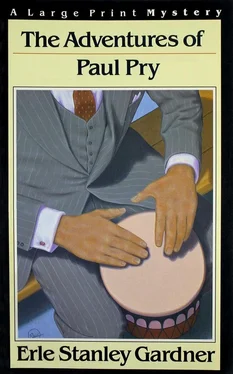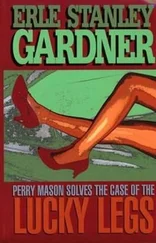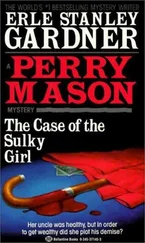The woman was hardly the type to drive an automobile. Her expensive clothes, the pride of her bearing, created an impression of surroundings that should have included a liveried chauffeur, a big limousine, an expensive apartment.
Yet she had been the one who had piloted the car, and the car was not a limousine. It was big and powerful, but was an open touring car with side curtains, partially concealing the back.
The woman’s eyes glittered over the face of Paul Pry. Then she relaxed. A certain tension which had held her rigid seemed to have dissolved. The look of hardness vanished from her face. She became a creature of softly seductive curves, of ravishing beauty, and she moved toward the door which was at the rear of the touring car with the grace of a professional dancer crossing the stage.
Her arm shot out. The gloved hand opened the door. The interior of the car seemed empty.
“O.K., Bill,” she said.
The plush robe on the floor of the car stirred into life. A casual observer would, perhaps, have expected some huge dog to answer the call and emerge from beneath the lap robe.
But it was no dog that shook off the folds of the robe and came out into the tang of the night air.
It was a man.
The man wore evening clothes. Someone had smashed a terrific blow on his nose; the eyes were swollen; the front of the starched shirt and the waistcoat showed plainly the stains of crimson which had spouted from the nose.
The coat was ripped. A pocket had been literally torn out, and was dangling from the threads which bound the bottom of the pocket to the coat. One of the silk lapels was ripped half away. There was no hat. The hair was matted, and the swollen nose made breathing through the mouth a necessity.
He was undignified as he crawled out of the shelter of the robe, staggered to the pavement. The woman extended a solicitous hand to his arm.
What followed came with that overlapping swiftness of events which is as impossible to follow in detail as the well-organized offensive of a well-drilled football team, sweeping down the field in a bewildering change of positions, executed at top speed.
Doorways opened, and men came out of the darkness, running low. The street lights glinted from the steel weapons. Yet no shots were fired.
One of the men swung a swift arm, and the blackjack “kerthunked” on the matted hair of the individual who had already seen such rough usage.
Another man jumped behind him, was ready to receive the unconscious form as it slumped backward and down.
Another swung a vicious blackjack at the woman’s head. She, too, would have been unconscious but for one thing, and that one thing was Paul Pry.
Paul Pry carried a cane, which, to the casual eye, was merely a polished bit of wood. Only the trained observer would have noticed that that which seemed to be wood was not wood at all, but steel painted to resemble polished wood. That steel was very thin, and furnished the sheath for a tempered blade of finest steel which was attached to the handle of the cane.
It was, in the hands of a trained fencer, a highly efficient weapon, and Paul Pry was adept in its use. His right hand jerked out the naked steel of the blade.
The lights glinted from it as it darted forward, as smoothly rapid as the tongue of a snake. The man who was swinging the blackjack at the woman’s skull jumped back with a scream. The cold steel had flicked out and bit deep into the shoulder muscles. The swinging arm was deflected, and the blackjack whizzed down in a harmless swing.
A car came around the corner, driven in second gear, the tortured tyres shrieking their protest as they skidded over the pavement. Two men turned with oaths to Paul Pry.
But there were no shots fired. For some reason, the assailants seemed to require absolute silence so far as their operations were concerned. It was an affair of steel and blackjacks. The glittering knives swept in wicked thrusts, and the men swung their blackjacks. But Paul Pry, standing with his left arm thrown about the woman, holding her closely to him, swung his blade in a flickering arc of deadly speed.
The steel flecked in and out forming a barrier of perfect defence, biting once in a while into the bodies of the attackers.
The woman swung. Her right hand came out from beneath the fur of the coat. There was a pearl-handled, nickelled automatic smuggled in the palm.
“I’ll shoot, you rats!” she blazed.
The defence was too strong. The attackers jumped back. There was a muffled command.
“He’s in the car,” said someone.
“O.K., boys,” rasped a voice. “Leave the—”
And the epithet which he used to describe the woman was one which was usually reserved for masculine ears.
The woman broke away from Paul Pry’s grasp.
“Give him back! Give him back!” she screamed.
But the figures, still moving with well-disciplined efficiency of motion, had jumped into the purring automobile which had dashed to the kerb. Doors slammed. The woman’s gun blazed.
The shot might have been a signal. It finished the deadly silence of the attack.
The car was ripping into grinding motion. The back wheels half spun as the power was kicked into the drive. The car seemed to jump forward, half stop, jump again.
And there were little pinpricks of fire which leaped from the darkness of that car. The street echoed to the rattle of bullets. Paul Pry felt one whip past his cheek, felt something jerk the hat from his head, heard the rattle of a leaden hail against the side of the building behind him. Then the car was away, and the firing ceased.
The woman’s face was deathly white. Her crimsoned lips were wide as she stared with bulging eyes at the departing car. And then her mouth spewed curses.
Paul Pry touched her arm. “The police,” he suggested.
The words affected her as would an electric shock. She jumped forward, toward the car she had driven up. One arm flung up the coat, the skirt, disclosing her shapely legs, the other pitched the weapon she had held into the back of the car, pulled open the door catch.
She raised her legs over the gear shift, slammed the feet down on the brake and clutch pedals, and she did it all with a swift efficiency, a lack of lost motion, which indicated perfect muscular co-ordination.
Her manner was that of one who is accustomed to swift decisions and rapid execution of those decisions. And Paul Pry, curious, sensing an opportunity to exercise his unusual talents, moving with an efficiency every whit as swiftly purposeful as that of the young woman, leaped into the seat beside her and slammed the door.
The gears were meshing by the time the door catch banged into place. Paul Pry turned his head toward the opposite side of the street as the car lurched into motion.
Mugs Magoo was crouched as he had been before the swift battle. His hat was moving in a series of circles. The danger sign. And then the car, swinging for the corner, lost Mugs Magoo from Paul Pry’s vision.
The woman sent the car into hurtling speed, quested the side street, prowled about the main boulevard, and finally was forced to face the facts. She had lost the car ahead.
She slowed, turned a drawn, haggard face to Paul Pry. “He’s gone!” she said.
Her voice held a note of despair, an utter hopelessness which indicated that something of the utmost importance had gone from her life.
Paul Pry nodded, his ears attuned to the throbbing of a police siren which was growing in intensity with a rapidity which betokened high speed on the part of the police car.
“I don’t know how you feel about the police,” he said. “But, as far as I’m concerned—”
And his shoulders shrugged expressively as he jerked his head over his shoulder in the direction of the shrieking siren which was now drawing uncomfortably close.
Читать дальше












